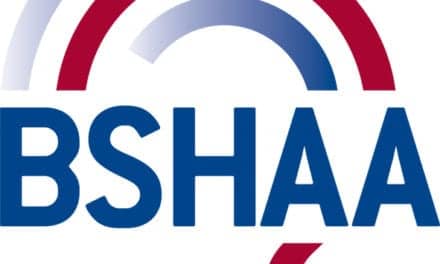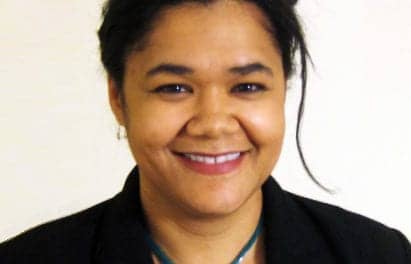
Outgoing President James McDonald (r) presented the Academy’s leadership gavel to new President Robert Manning (l).
|
The annual meeting of the Academy of Dispensing Audiologists (ADA), held in late-October at the Hotel del Coronado in San Diego, brought 809 audiologists to the four-day event. This year’s convention focused primarily on the aspects of transitioning practicing audiologists toward the AuD degree, generating more awareness of audiology as an autonomous profession, as well as new technology emerging in the hearing health care field. Approximately 60 companies displayed products and services in the convention hall and more than 40 seminars and special educational sessions were offered. Also represented were the academic programs designed specifically for current practitioners to obtain their AuDs (e.g., via distance learning).
The Academy has experienced excellent growth in the last few years, says Incoming-President Robert Manning. ADA membership has grown by 15% since 1999 and the organization now represents 1123 audiologists. In an effort to fully promote the AuD as the entry-level degree for the profession, starting on Jan. 1 the Academy will accept membership applications only from audiologists who currently have completed, or are enrolled in, AuD programs (current members will be “grandfathered”).
At the opening session, two keynote speakers painted a bright but challenging picture for the future of the profession and for the average dispensing audiologist in his/her workaday life. Joan Vitek Hiller, PhD, a sociologist from Social Research Associates, Minnetonka, MN, presented demographic and cultural trends as they relate to health care professionals. Hiller says that the balance of case management will shift to consumers and there will be a redefinition of roles for health care providers, consumers and third party payers. She believes that a building and establishment of trust and a solid reputation will become crucial for all health care practitioners as the quest intensifies to become the primary information source among many competing entities. Laura Michaud, a longtime veteran of the hearing industry and now a motivational speaker/consultant for many organizations, presented a lively seminar on the attitudinal needs of hearing care professionals. Using generous amounts of humor and audience participation, Michaud explained the value of self-fulfillment, self-esteem, maintaining a positive attitude, and complimenting and encouraging the people with whom you work. Legislative Gains & Initiatives In addition to the above reimbursement victory, ADA and AAA successfully lobbied to eliminate the long-held requirement that audiologists billing for ENGs must conduct the test only under a physicians’ supervision. The requirement has now been amended so that audiologists who do not work in hospitals can receive direct reimbursement from Medicare for the balance test. The organization also won a battle with Medicare relative to the payment for basic hearing testing and impedance codes (ICD-9). ADA continues its efforts to lobby for “independent healthcare provider” status so audiologists can see patients without physician referral. |









